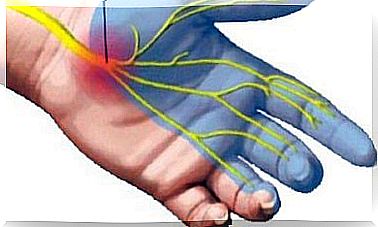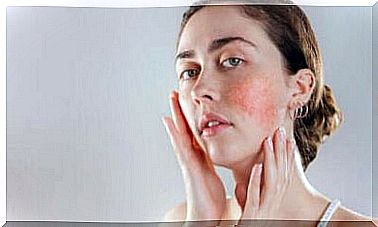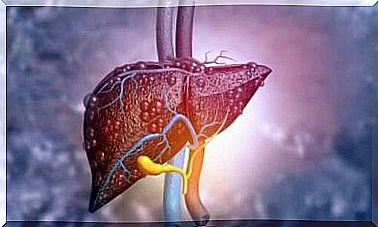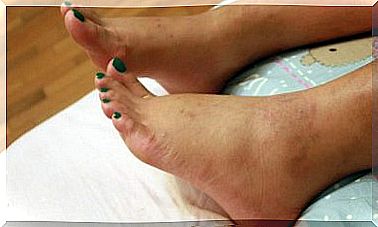Nocturnal Anxiety – Causes And Tools To Combat It
At night we are often more receptive to negative thoughts that can lead to anxiety. When this becomes a habit, it has a negative impact on wellbeing.

Nocturnal anxiety states are characterized by inner tension and restlessness at night, especially before going to sleep. They arise from imagining threatening or dangerous things that come to life through the overwhelming power of negative thoughts at that moment of the day.
This phenomenon brings with it a number of unpleasant physiological and cognitive symptoms, which are based on a primal reaction to danger. If they get too strong or last too long, they can cause serious physical or mental discomfort.
What is nocturnal restlessness?
Nocturnal restlessness is an emotional state that is characterized by tension, restlessness and restlessness. One imagines a potential danger or threat, which leads to a range of physical and mental responses and behavior. And in this case that always happens at night.
The cause of these fear responses lies in adapting to certain situations for survival purposes. Because this is an instinctive reaction to threat and danger. If this does not actually exist, it does not protect people, but rather has the opposite effect.
In such cases, the response comes in response to blind alarms, that is, imaginary threats that aren’t really threats, or an overestimation of danger. So when it comes to nocturnal restlessness that is based on overreactions or lasts for a long time, we speak of pathological reactions .
The pathological anxiety states cause a blockage in everyday life, cause physical discomfort, reduce performance and therefore mostly require professional help to solve the problem. Daily tasks can no longer be performed due to the symptoms associated with insomnia.
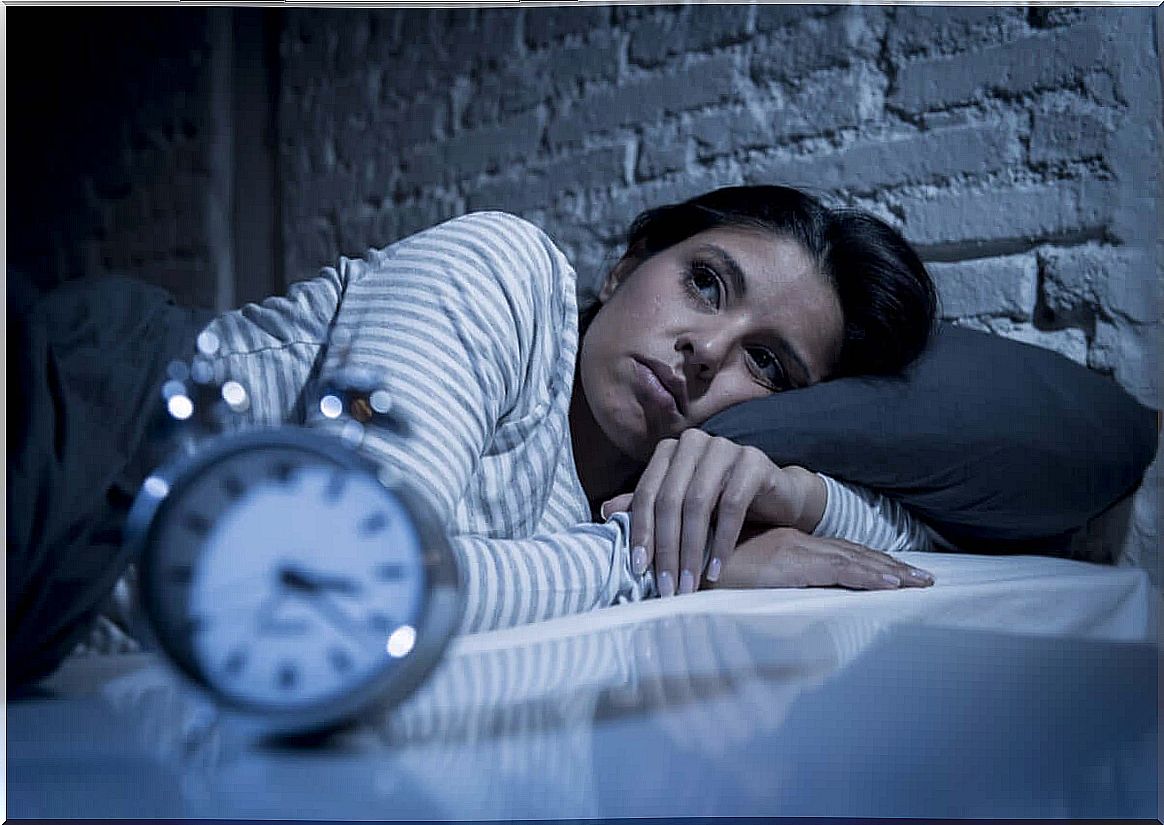
Nocturnal anxiety disrupts sleep and creates insomnia, which affects everyday life.
Nocturnal anxiety: symptoms
Nocturnal anxiety manifests itself through a variety of physical and mental symptoms that occur while falling asleep. Not everyone experiences these with the same intensity, because they also have a lot to do with the general constitution.
The most common ads are:
- Increase in the heartbeat frequency : There is palpitation or stumbling of the heart, which is accompanied by tightness in the chest area and feelings of suffocation.
- Sweats: Excessive sweating that is not related to ambient temperature; cold sweat.
- Abdominal pain: Sometimes there is nausea and vomiting.
- Loss of reality: An unreal feeling arises in that one believes to be split off from one’s personality; this is also called the experience of depersonalization.
- Anxiety: Loss of control and fear of death.
Nocturnal anxiety: causes
Nocturnal anxiety is related to a variety of circumstances, which can vary from person to person. An important step towards healing is to recognize the underlying problem and try to solve it. The most common causes are as follows:
- Stress factors in everyday life: Interpersonal problems, stress at work or financial difficulties are factors that can trigger anxiety crises. It is also normal that such situations lead to a predominance of negative thoughts, which are particularly strong before falling asleep and do not allow you to calm down.
- Traumatic experiences: incidents such as natural disasters, rape, torture or hostage-taking cause severe psychological sequelae in people who have experienced them, leading to severe symptoms of anxiety. Before going to sleep is a classic moment when traumatic experiences come back to life.
- Biological factors: Genetic predisposition plays an important role in the manifestation of anxiety. There are people who tend to do this much more often because they are hereditary.
- Distorted thought processes: Anxiety is caused by an overestimation of threats and a lack of belief in one’s own abilities. This distorted perception can cause fear reactions when falling asleep.
Nighttime Anxiety: Keys To Healing
If nighttime anxiety crises are very dominant and persistent, it is advisable to seek medical help to determine whether it is a serious anxiety disorder that is best treated with psychotherapeutic measures and sometimes medication. At the same time, those affected can try to reduce the symptoms by changing their behavior.
Stress Management Strategies
Exercising helps the body to reduce stress and tension and thus to relax better. If you do this two hours before bed, you will automatically be more tired and will likely find it easier to fall asleep.
Meditation and yoga help to focus more on the here and now. At the same time, the stretching exercises cause physical relaxation.
Another alternative are muscle relaxation techniques and breathing exercises. This relieves tension and prevents hyperventilation, both symptoms of anxiety crises.
Habits
Fixed sleeping times condition the body to adjust to sleep at a specific time. This also includes going to the bedroom only to sleep and not to work or study, in order to avoid connecting the sleeping place with stress and activities that lead to tension.
In addition, no stimulating substances such as alcohol or caffeine should be consumed late at night, as their effect on the nervous system can promote anxiety.
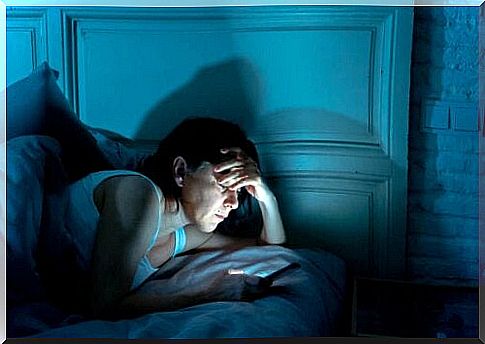
Try to avoid negative thoughts while falling asleep
When falling asleep when it is dark, we are more receptive to negative thoughts, the so-called mental cinema. Because at this point of the day our mind is no longer so busy with other things and so the negative thoughts find space and lead to fear.
When this becomes stronger and more intense, it affects our overall well-being. It is therefore very important to get to the root of the problem and use the appropriate techniques or therapies to solve it.
